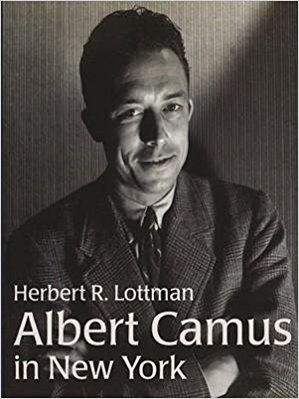Albert Camus was a French-Algerian journalist, playwright, novelist, philosophical essayist, and Nobel laureate. He was born November 1913 and died in January 1960.
His first influential novel, The Stranger, was released at the same time that the Cultural Relations Section of the French Ministry of Foreign Affairs sent him on a trip to represent the French Government in the United States.
Camus' arrival in the United States had been anticipated by a full-page article in the New York Herald Tribune Weekly-Book Review. His book "The Stranger" was already in print in France under the name L'Etranger.
The book, "Albert Camus in New York" is like a chapter from Herbert Lottman's 848 page biography of Camus.
In the lectures he gave on his trip he was often asked about his philosophical point of view, which he labeled as "Absurd-ism". Sartre, an existentialist, had reviewed The Stranger and he was often confused with Camus by Americans.
Wherever Camus went he was asked if he was an existentialist. He didn't seem to like being asked and he always said no.
The meaning of existentialism suggests that each individual—not society or religion—is solely responsible for giving meaning to life. Moral values are abstractly contrived and do not exist otherwise.
Camus's Absurdism" refers to the conflict between the human tendency to seek inherent value and meaning in life and the human inability to find any. In this context absurdism does not mean "logically impossible", but rather "humanly impossible".
This small books gives some insight into where Camus was coming from overall.
The Stranger by Albert Camus is reviewed on this site. See November 5th 2017 post below
Albert Camus was a French intellectual and influential philosopher who was awarded the Nobel Prize for Literature in 1957.



